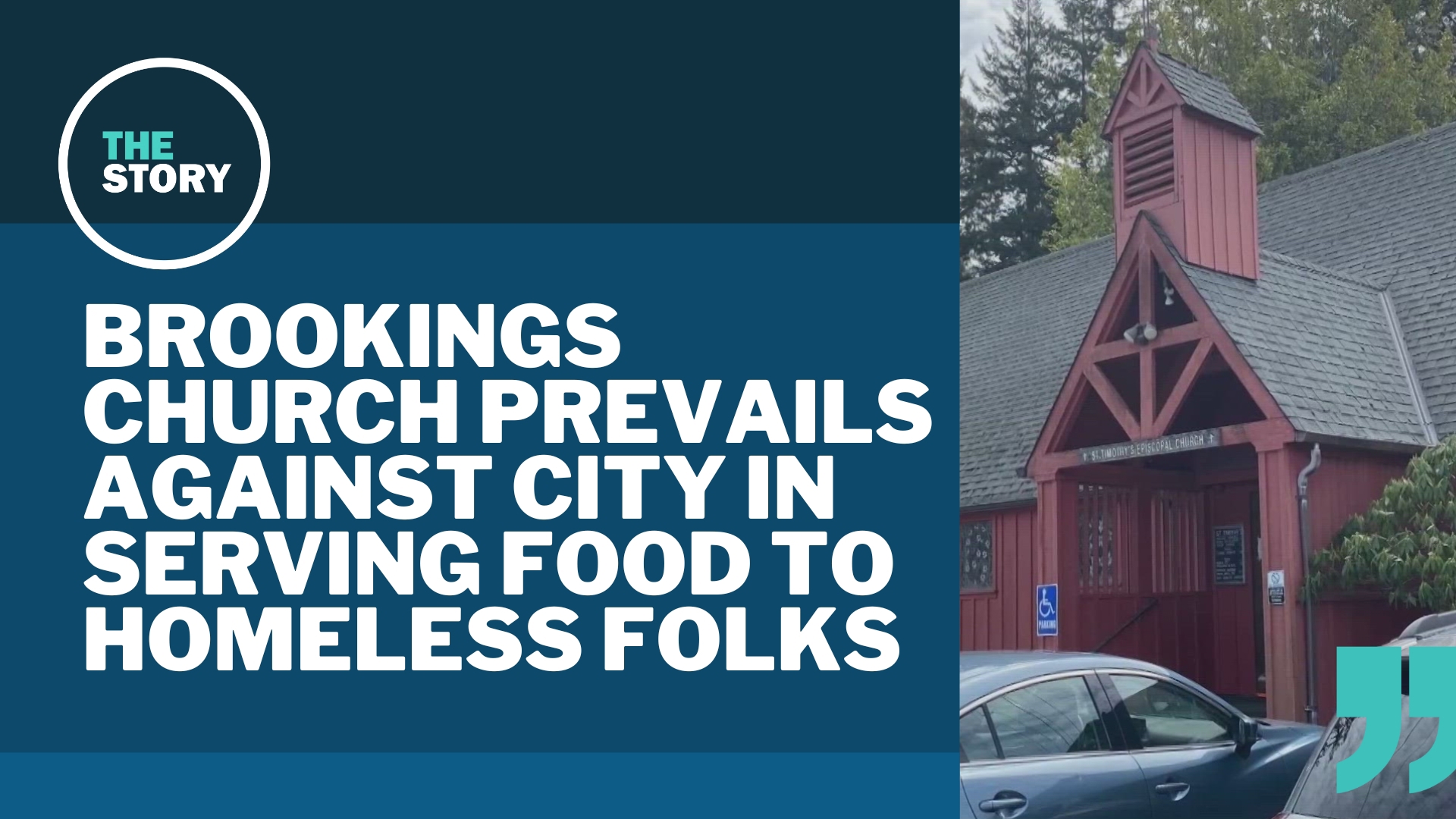BROOKINGS, Ore. — The Brookings City Council voted to pay a total of $418,000 in legal fees for the church that was entangled with the city over serving free meals to the homeless community during the COVID-19 pandemic.
The case started in October 2021 when the city tried to limit the number of days that St. Timothy's Episcopal Church could feed the homeless, after neighbor complaints about homeless residents gathering in their residential neighborhood near the church. The church sued, arguing the practice is how they express their religion.
The U.S. Justice Department even got involved, at one point issuing a statement of interest on behalf of the southern Oregon church, asking the judge to rule in St. Timothy’s favor, which is exactly what a federal judge in Medford did in March.
In May, the church filed a motion for attorney fees from the city, and the two sides have been in negotiations until last week.
At the recommendation of City Attorney Lori Cooper, all four city council members and the mayor voted to pay $375,000 Stoel Rives LLP, a Portland-based law office, and $43,000 to the Oregon Justice Resource Center.
At the meeting approving the settlement, Councilmember Andy Martin concluded, "I think the winners in this lawsuit, obviously: this law firm that's going to collect these attorney fees. The losers are the people in this neighborhood that have had to deal with this."
He added that though he disagreed with the federal judge's decision, he believes the settlement will "lessen somewhat the impact on the city taxpayers that unfortunately have to suffer for the reasons that were just stated," referring to complaints from residents of the neighborhood near St. Timothy's Episcopal.
Rev. Bernie Lindley of St. Timothy's Episcopal Church, in a sense, agreed, telling KGW on Wednesday: "We wish this whole thing would've never happened."
Lindley said that the church's intention before everything unfoiled was to "to sit down around the table... and make compromises," but "instead of a conversation, we had to go through this whole legal process. Now that it's over, we hope that we will be able to sit down at a table and figure how we can be of better service to our community at large."
At the council meeting, Councilmember Clayton Malmberg expressed similar sentiments, saying he feels it's "unfortunate that things have gone this far."
"It all kind of stems from not being a good neighbor, in my opinion, and not working with your community to find a path forward and address the needs while minimizing the impacts," Malmberg said. "...My hope is that moving forward, there's more effort to work with the community (and) recognize that what we do has an impact on those around us and strive to be a good neighbor."
At the end of the council meeting, Mayor Isaac Hodges apologized to the citizens of Brookings, "that their hard earned taxpayer money is going to line the pockets of lawyers."
"There's no doubt that these are funds that should have been used for the betterment of our community," Hodges said, "in total, over a half million dollars has been wasted between the $400,000 being paid out to tonight or being ready to be paid out tonight, and then the much smaller amount paid to the lawyers that were representing the city of Brookings."
Hodges ended the meeting by emphasizing his belief that "laws or zones or ordinances are to be followed by everyone," but he hopes to avoid legal disputes in the future, instead finding solutions outside the court system.
"As a city, I would like for us to have a dialogue when conflict occurs because it will and work our way through to a solution that benefits the greater good instead of paying the mortgage of a lawyer," he said. "We will not always see eye to eye as a community. We will not always agree, but we should be willing to listen and empathize with each other."
As part of the settlement, the city has also agreed to repeal its ordinance restricting when the church can feed people and solve any remaining abatement issues with the church. The church agreed to withdraw an appeal to the Oregon Land Use Board of Appeals.
The church said the agreement didn't cover all their legal expenses but enough to move forward.
"We're glad we don't have this distraction any longer as we try to serve all the people in our community, especially the ones who are on the margins, the ones who are disenfranchised," Lindley said.

